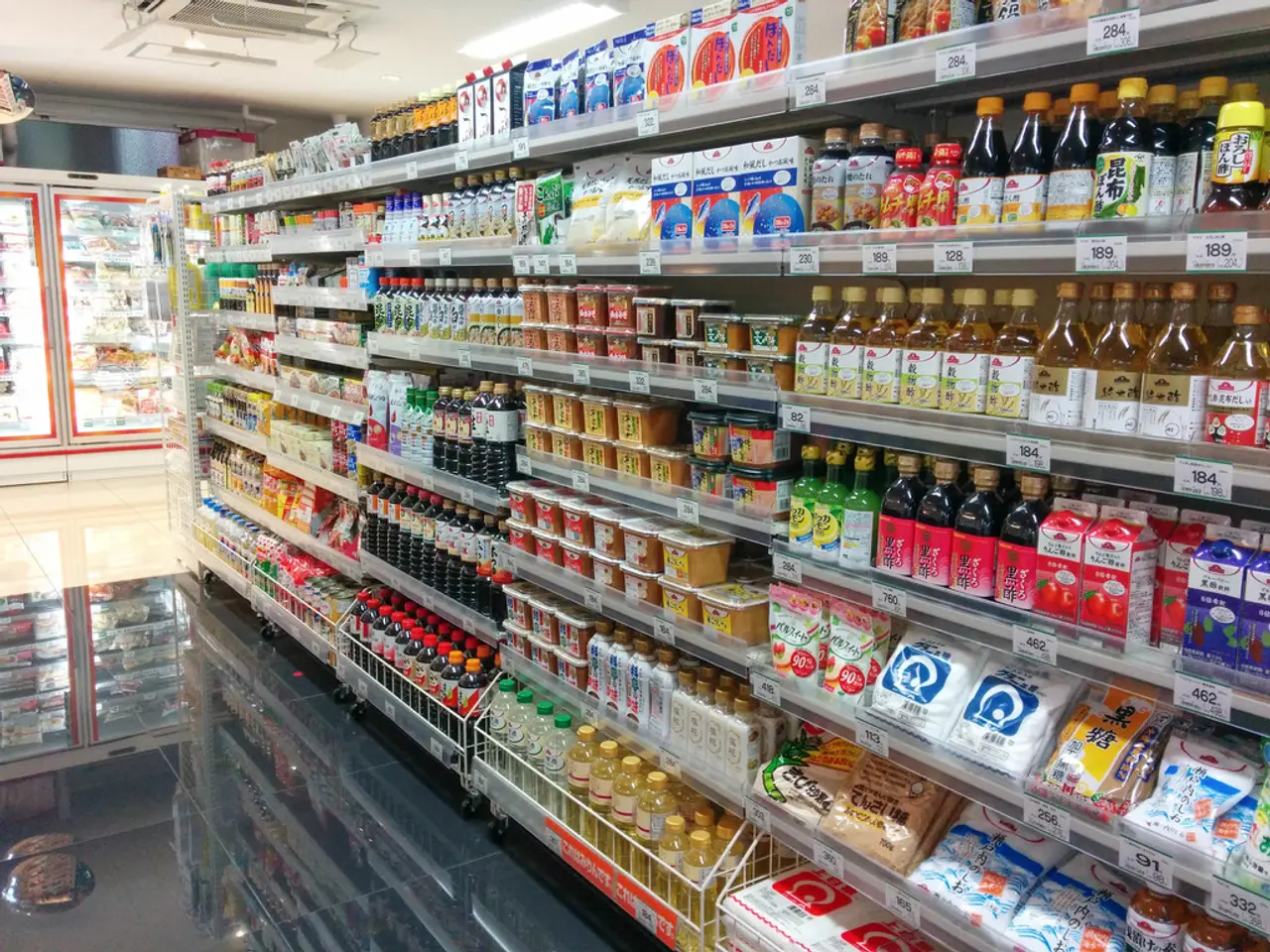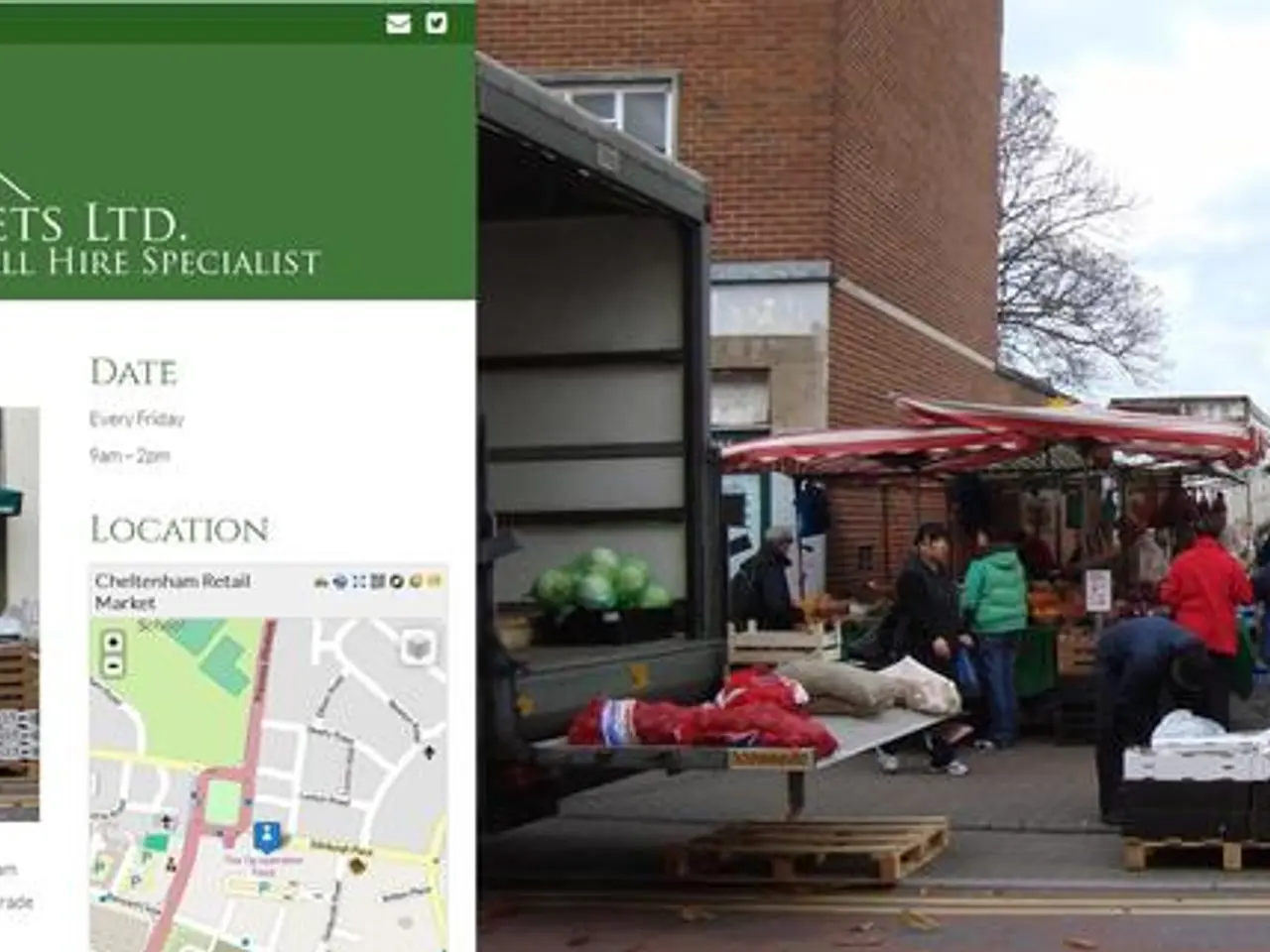Soaring grocery prices due to yield reductions caused by climate change, offering no immediate respite for consumers
In the heart of Seoul, office workers lined up outside a discount cafe on July 2, as they sought to save on their daily expenses amid rising inflation. This inflationary trend, which has been a recurring theme in South Korea, is causing food prices and costs of dining out to increase.
The latest figures reveal that the consumer price index rose 2% on-year for the first half of 2025 in Seoul. This moderate but slightly rising trend has reached a 2.2% year-on-year in June 2025, just above the Bank of Korea's (BOK) 2% target range[1][2][3].
The inflation narrative regarding food prices and dining out is mixed. Fresh food prices have eased recently, helping moderate overall food inflation. However, prices for processed foods and eating out services have picked up, reflecting increased costs in these categories[2][4].
The Bank of Korea (BOK) is closely monitoring this situation, particularly amid U.S. tariff uncertainty. The central bank recently cut interest rates to 2.5% in May 2025 to counter slowing GDP growth (forecast at 0.8% for 2025) but is expected to keep rates steady for now to balance growth support with inflation control[1][2][4].
Consumer sentiment, however, has hit a 4-year high on political stability and planned stimulus, offering a glimmer of hope. This cautious optimism is tempered by economic slowdown risks, as well as rising household debt and increasing housing prices[5].
In the retail sector, companies are drastically slashing prices to boost sales amid inflation-fueled spending drought. This is evident in the bustling supermarkets, where shoppers are carefully examining produce, as depicted in the photo from June 30[6].
The current state of inflation in South Korea creates a nuanced environment where consumer staples companies with pricing power benefit from rising processed food and dining out costs, while policymakers try to support the slowing economy without fueling inflation or financial market overheating[1][4].
References: [1] Yonhap News Agency. (2025, July 1). South Korea's inflation rate hits 2.2% in June. Retrieved from https://en.yna.co.kr/view/AEN20250701002900325 [2] Reuters. (2025, July 1). South Korea's inflation rate rises to 2.2% in June. Retrieved from https://www.reuters.com/world/asia-pacific/south-koreas-inflation-rate-rises-22-june-2025-07-01/ [3] The Korea Times. (2025, June 30). South Korea's inflation rate hits 2.2% in June. Retrieved from https://www.koreatimes.co.kr/www/news/biz/2025/06/106_300840.html [4] The Wall Street Journal. (2025, July 2). South Korea's inflation rate and consumer spending: A balancing act amid moderate inflation and economic slowdown. Retrieved from https://www.wsj.com/articles/south-koreas-inflation-rate-and-consumer-spending-a-balancing-act-amid-moderate-inflation-and-economic-slowdown-11625294000 [5] The Associated Press. (2025, July 3). South Korea's consumer sentiment hits 4-year high on political stability and planned stimulus. Retrieved from https://apnews.com/article/business-economy-south-korea-politics-inflation-stimulus-e78d13e59743a7b4c64633d7b81c5b6f [6] News1. (2025, June 30). Photo: Shopper examining produce at a supermarket in Seoul. Retrieved from https://news1.kr/articles/?3875216
- The inflationary trend in South Korea's economy is affecting various sectors, such as the industry of food and dining services, where prices for processed foods and eating out services have increased.
- Amid the rising inflation, policymakers, including the government and the Bank of Korea (BOK), are closely monitoring the situation, attempting to support the slowing economy without exacerbating inflation or causing financial market overheating.
- In response to inflation, businesses in the retail sector are drastically reducing prices to boost sales, a trend that is visible in bustling supermarkets across the country.
- The science of environmental and economic factors relevant to climate-change, environmental-science, finance, and business is critical in understanding the impact of inflation and inflation-fueled spending patterns on the overall health of the South Korean economy.
- In the midst of these inflationary challenges, consumer sentiment has reached a 4-year high due to political stability and plans for stimulus, offering some hope for a more balanced growth in the coming months. However, the remainders of economic slowdown risks, rising household debt, and increasing housing prices must still be addressed.




